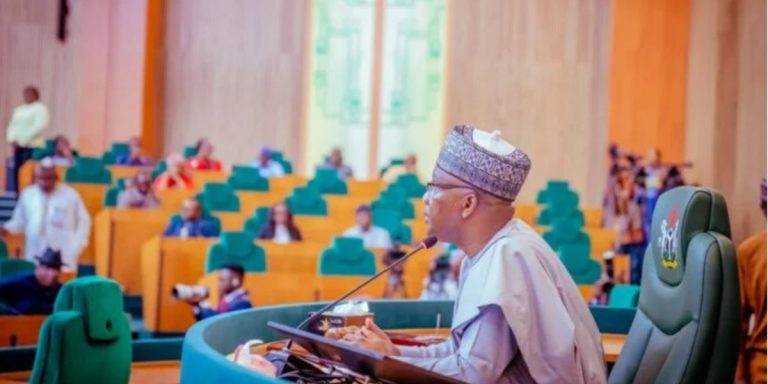The House of Representatives has directed the Central Bank of Nigeria (CBN) to immediately suspend the implementation of increased ATM transaction charges and the removal of free ATM withdrawals for customers using other banks’ ATMs, as outlined in a recent circular by the apex bank.
The resolution was passed sequel to the adoption of an urgent motion of public importance sponsored by Hon. Marcus Onobun, who expressed grave concerns over the economic impact on citizens across the country.
In his lead debate, Onobun argued that Nigerians are already burdened by rising costs, including increases in electricity and telecommunications tariffs.

He said: “The House is aware that the Central Bank of Nigeria (CBN) in its new circular, has reviewed the ATM transaction fees stipulated under section 10.7 of the ‘CBN Guide to Charges by Banks, Other Financial and Non-Bank Financial Institutions’, prescribing an increase in ATM withdrawal charges and a discontinuation of the free ATM withdrawals for customers using other banks’ ATMs, thereby imposing additional financial burdens on Nigerians.
“The House is also aware that the said section 10.7 of this Guide was last reviewed in 2019, reducing ATM transaction fees from N65 to N35 per transaction.

“The House note that according to this new policy, customers withdrawing from their Bank’s ATMs will continue to enjoy free withdrawals.
“However, a fee of N100 per N20,000 withdrawals will be applied to customers from other Banks transacting from ATMs within the Bank premises.
“Similarly, Customers from other Banks transacting from ATM outside the premises of the Bank (Malls, Market places, and other public places) will be charged N100 and an additional surcharge of N500.

“The House is disturbed that the citizens of Nigeria are already grappling with multiple economic hardships, including high inflation, increased fuel prices, electricity tariff hike, and numerous banking and service charges that significantly reduce disposable income and negatively impact the economic welfare of citizens.
“The House is worried that the imposition of additional ATM withdrawal charges will further limit the financial inclusion of Nigerians by discouraging low-income earners from accessing banking services, thereby contradicting the CBN’s financial inclusion agenda.
“The House is cognizant of the fact that the banking sector has continued to record significant profits, imposing further charges on consumers without corresponding improvements in service delivery or infrastructure is unjustifiable.

“The House note that the role of government includes protecting citizens from exploitative financial practices that may lead to further economic distress,”
Hence, the lawmakers mandated the apex bank to immediately suspend the implementation of this policy, pending proper engagement with the relevant Committees on Banking, Finance, and Financial
On February 10, 2025, the apex bank announced that charges would apply anytime customers use the ATMs of banks other than theirs.
“The three free monthly withdrawals allowed for remote-on-us (other bank’s customers/not-on-us consumers) in Nigeria under Section 10.6.2 of the Guide shall no longer apply,” the bank said in a circular to financial institutions.

The CBN directed banks and other financial institutions to apply the following charges with effect from March 1, 2025.
The apex bank said while customers withdrawing at the ATMs of their banks and financial institutions won’t be charged, customers withdrawing from the ATM of other banks would now be charged ₦100 per every ₦20,000.
The CBN said for off-site ATMs — automated teller machines not on a bank’s premises – like those at shopping malls, eateries and other public places — a surcharge of not more than ₦500 per every ₦20,000 will apply in addition to the statutory ₦100 fee for withdrawals by customers of other banks’ ATMs.

The apex bank attributed the reviewed charges to rising costs and the need to improve the efficiency of ATM services in the country.
“This review is expected to accelerate the deployment of ATMs and ensure that appropriate charges are applied by financial institutions to consumers of the service,” the circular stated.
Criticisms have trailed the new policy but the apex bank insisted that its policy is mutually beneficial to customers and commercial banks.




